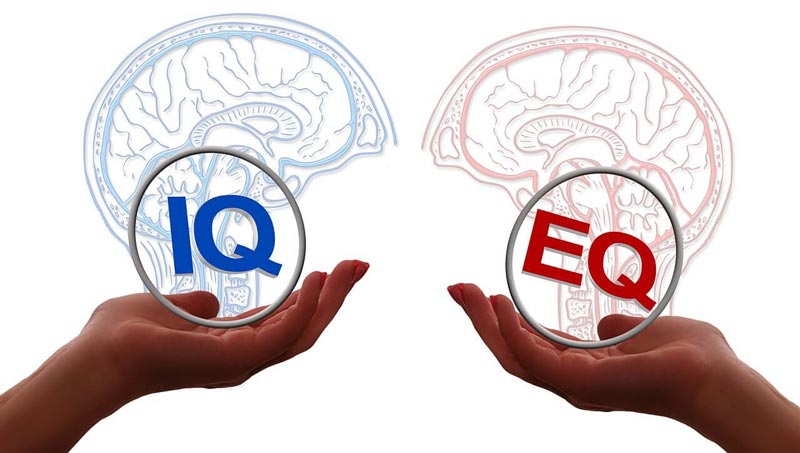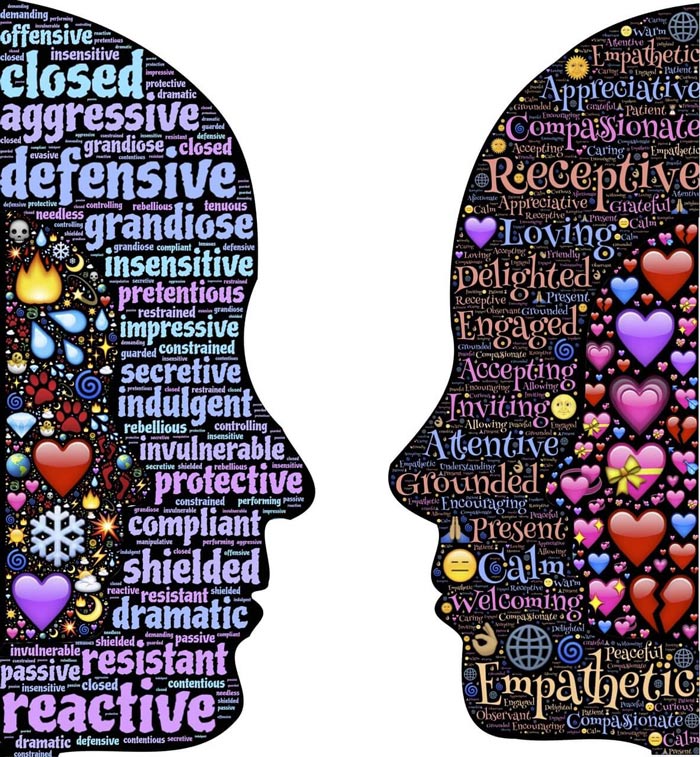Emotional Intelligence
Emotional Intelligence (EQ) in Business 2022
Businesses are looking for Leaders who have high EQ equal to their superb Technical skills
Businesses across the world have begun to realise the importance of Emotional Intelligence and its role in the workplace. They are increasingly looking for employees and Leaders who possess this important skill set.
In 2022, business are looking for Leaders who have high EQ equal to their superb Technical skills.
This is supported in Research, which has shown that businesses that give importance to Emotional Intelligence are more productive, their growth is much faster, and they have higher chances of succeeding.
If you have employees capable of managing their emotions and understanding the emotions of others, they’ll have an easier time completing their tasks, collaborating with colleagues and will find it easy to build healthy relationships along the way. This helps them in achieving their personal as well as overall business goals more effectively.
Emotionally Intelligent leaders are more capable of handling tough situations like workplace conflicts and managing their workforce more effectively. People also like to work for Leaders who care about them and their emotional well-being. Emotionally Intelligent leaders get things done, and they get them done right.

What Is Emotional Intelligence?

In simple words, Emotional Intelligence is the ability to effectively manage your emotions, and the emotions of others around you.
Daniel Coleman, an American psychologist, says that Emotional Intelligence is based on five key elements that a person needs to master to raise their levels of emotional intelligence.
Self-awareness:
Self-awareness is the ability to recognise your emotions and act on them accordingly.
It’s about being aware of your different moods, your strengths and weaknesses, behaviours and actions, and how they can affect the people around you.
This also means you should regularly monitor your emotions and effectively control the reactions caused by those very emotions.
Self-aware people are good at recognising each particular emotion for what it is and what it is telling them.
Self-regulation:
Self-regulation is the ability to regulate emotional responses effectively. A person who is better at self-regulation will know how and when to express his emotions.
It is all about expressing your emotions at the right time and place.
These people do not defer to shouting or projecting onto others during conflicts and difficult situations. They are skilled at handling situations calmly and effectively.
Motivation:
Being consistent in what you do, enjoying your work, and pushing yourself to achieve your inner desires and goals are important qualities of an emotionally intelligent person.
They are passionate about whatever they do, are optimistic, and have a burning desire to improve themselves.
Positivity is infectious and conducive to a harmonious working environment.
Being positive, even when faced with difficult situations, will make tasks easier, and you’re more likely to encourage others, boosting their morale.
Empathy:
Empathy is about understanding other people by seeing things from their perspective and recognising their emotions.
To empathise with others is to feel with them, see the world as they see it, and feel what they feel.
Only when you achieve this can you fully understand another person’s meaning.
Being empathic can help you to enhance your relationships as well.
Leaders who are empathic and show compassion towards their employees are likelier to have loyal, motivated, and happy employees.
And these employees will, in turn, reward the company with higher productivity and greater profits.
Social Skills:
Social skills mean interacting with others, building positive connections and effectively managing relationships.
Leaders excelling at social skills are excellent communicators who get things done correctly.
Social Skills involve different things like active listening, verbal and non-verbal communication skills, and being able to persuade someone effectively.
The Impact of Covid: Its Affect on Businesses,
and the Increased Need for EQ
Times have changed since the world plunged into a pandemic two years ago. The Covid-19 pandemic has changed not only how we live but also how businesses function in this post-covid-era.
The way we do business, our workplaces, and our leadership have experienced a complete reset following the devastating effects of Covid.
The concept of a “9-5 traditional job” is increasingly becoming a thing of the past.
In this post-pandemic era, remote jobs are the new norm, and this new transition has made it more important than ever for companies to adopt and promote EQ practices in the work environment.
Although EQ is not a new concept, its effectiveness is increasingly becoming popular following the wake of remote working and flexible job environments.
Remote working has also reduced the concept of human connection; therefore, it has become more difficult to gauge the emotional state of others or read their emotional signs like body language and tone of voice.
As a result, this new age of flexible work requires a change in how Managers and Leaders interact with their teams and guide them.
Today, it is more important than ever for Leaders to develop soft skills such as “empathy” to meet evolving employee expectations.

How to increase EQ

It’s time Leaders and Managers adopt the skill of Emotional Intelligence in this changing business environment.
Anyone can learn it. Simply put it’s about practicing self awareness, and consciously choosing to change what you identify as reactive or self focused behaviours into more productive, emotionally intelligent approaches.
Self-awareness is the first step to discovering potential gaps and pitfalls in your own Emotional Intelligence, and from there, consciously determining your corrective action plan.
Businesses can facilitate EQ Development for their management by introducing Executive Coaching or Leadership Coaching programs.
Coaching can be one of the most effective ways to nurture a Leader’s Emotional Intelligence.
With the help and guidance of a Coach, you can try out new approaches and correct your action whenever and wherever needed.

